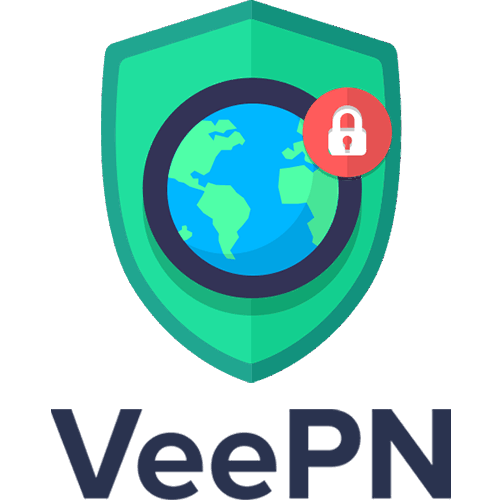Global Online Safety Acts: How New Laws Are Changing the Internet Experience
Across the world, governments are introducing new online safety acts to protect children and regulate harmful content. From strict age verification rules to minimum age requirements for social media, these laws are reshaping how internet platforms operate and how users access the web. While the goal is to create safer digital spaces, these changes also raise serious questions about privacy, free speech, and digital rights.
One of the most influential examples is the UK Online Safety Act, which is already transforming how platforms enforce safety measures. However, the UK is not alone; similar initiatives are emerging in the United States, the European Union, Australia, France, and beyond.
What Are Online Safety Acts?
Online safety acts are laws designed to:
- Protect minors from harmful or age-inappropriate content
- Regulate how platforms handle user-generated content
- Introduce mandatory age verification for accessing adult websites
- Set minimum ages for social media accounts
- Impose heavy fines and penalties on non-compliant platforms
These laws often come with duties of care for online services, requiring them to proactively prevent harmful content and provide safer environments for users.
The UK Online Safety Act: Key Points
The UK Online Safety Act 2023 is one of the most far-reaching regulations of its kind. Some of its key provisions include:
- Mandatory age verification for pornography and harmful content (effective July 2025)
- Platforms must remove both illegal and legal but harmful content accessible to children
- Oversight by Ofcom, which can impose heavy fines and restrict services
- Use of “highly effective” verification methods such as photo ID, bank cards, or biometric checks
- Significant penalties for non-compliance, including potential blocking of services
While the law aims to protect minors, it has sparked debates about privacy risks, the impact on smaller platforms, and whether users will turn to VPNs or alternative services to bypass restrictions.
📖Learn more about the UK Online Safety Act
Other Countries Following Suit
The UK is not alone; similar initiatives are spreading worldwide. Here’s how major jurisdictions compare:
Australia
- Social Media Minimum Age Act 2024 introduces age restrictions for under-16 users.
- Plans for stricter verification on adult sites.
- Implementation set for December 2025.
- Critics warn of vague definitions and potential privacy violations.
European Union & France
- The Digital Services Act (DSA) requires platforms to assess risks, enforce age protections, and provide safer environments for minors.
- France has gone further, demanding credit card or ID verification for adult sites. Some platforms, like Pornhub, temporarily suspended access in protest.
- France also includes privacy safeguards like “double-blind” verification to reduce data risks.
United States (State-Level Laws)
- Several U.S. states (Texas, Louisiana, Mississippi, Utah) have introduced strict age verification for adult content.
- In 2025, the U.S. Supreme Court upheld Texas’s HB 1181 in Free Speech Coalition v. Paxton.
- In Mississippi, the Walker-Montgomery Protecting Children Online Act requires age registration, limits data collection, and mandates harm mitigation strategies for minors.
- However, many state laws face constitutional challenges over free speech and privacy rights, creating a patchwork of rules.
What This Means for Internet Users
For everyday internet users, these new safety acts come with significant consequences:
- More Age Verification Checks
Expect to see frequent ID or credit card requests when accessing restricted content. - Loss of Anonymity
Stricter verification could reduce online anonymity and deter people from accessing sensitive but legitimate content (e.g., sexual health resources). - Privacy Concerns
Collecting IDs and biometric data increases the risk of data breaches and misuse. - Circumvention via VPNs
Many users are already turning to VPNs to bypass restrictions, especially in the UK and France. - Impact on Smaller Platforms
Compliance costs may force smaller websites to block access in certain regions instead of building complex verification systems. - Uneven Global Access
Users in countries without ID documents, bank cards, or parental consent systems may find themselves excluded.
How Users Get Around Online Safety Checks
While governments and regulators are introducing stricter age verification and safety rules, many internet users are finding ways to bypass these checks. This highlights the ongoing tug-of-war between regulation, privacy, and accessibility.
1. Using VPNs to Mask Location
One of the most common methods is using a VPN (Virtual Private Network). A VPN allows users to appear as though they are browsing from another country, effectively bypassing local restrictions and age-gated websites. For example, some UK users have turned to VPNs after the UK Online Safety Act introduced millions of new age verification checks.
2. Privacy-Preserving Age Verification
In some countries, alternative systems are being developed that allow users to prove they are over 18 without sharing full ID details. These systems, sometimes called “blind verification,” use third-party providers to confirm age while protecting personal identity.
3. Switching to Alternative Platforms
When mainstream sites introduce strict age checks, some users migrate to unregulated or offshore platforms that do not comply with the new laws. While this avoids verification, it can expose users to more harmful or less secure environments.
4. Use of Anonymous Payment Systems
Some platforms allow verification via payment cards. Users who want to maintain anonymity sometimes use prepaid cards or disposable virtual cards to meet verification requirements without linking their real identity.
⚠️ Important Note: While these methods can bypass checks, they come with risks. Users may violate local laws, compromise their data, or expose themselves to unsafe websites. Governments and regulators are also moving quickly to close these loopholes.
5 Best VPNs to Bypass Online Safety Checks
ExpressVPN
Features
- Number of servers: More than 105
- Speeds: Unlimited
- Server locations: 160 in 105 countries
- Maximum devices supported: 10 (Basic plans) - 14 (Pro plans)
- 24 live chat: Yes
- 30-day money-back guarantee: Yes
Pros/Cons
- Fastest VPN out there
- Strict no logs policy
- 256-bit AES encryption
- Slightly more expensive than others
- Pros: Fastest VPN out there; Strict no logs policy; 256-bit AES encryption;
- Lowest price: $2.79

Get 79% off now
NordVPN
Features
- Cryptocurrency accepted? Yes
- Simultaneous connections: 10
- Dedicated IP-addresses? Yes
- Servers: 8,700 in 129 countries
Pros/Cons
- Unbeatable value & access to 129 countries
- Fastest VPN for optimal streaming
- Advanced security features
- Higher renewal prices
- Pros: Unbeatable value & access to 129 countries; Fastest VPN for optimal streaming; Advanced security features;
- Lowest price: $3.39

Get up to 70% off now
Surfshark
Features
- Servers: 4,500 in 100 countries
- Antivirus: Surfshark One & One+ Plans
- Simultaneous connections: Unlimited
- Ad blocking? Yes
- Cookie Pop-up Blocker: Yes
Pros/Cons
- Unlimited simultaneous connections
- User-friendly VPN app
- 256-bit AES encryption & no-logs
- Expensive for one-month plans
- Pros: Unlimited simultaneous connections; User-friendly VPN app; 256-bit AES encryption & no-logs;
- Lowest Price: $1.99

Get 87% off now
ProtonVPN
Features
- P2P support? Yes
- 30-day money-back guarantee? Yes
- Country of origin? Switzerland
- Servers: 15,850+ in over 125+ countries
- Simultaneous devices: 10
Pros/Cons
- Professional support
- Modern interface and apps
- AES-256 encryption
- Lesser known provider
- Pros: Professional support; Modern interface and apps; AES-256 encryption;
- Lowest price: $2.99

Get 64% off now
VeePN
Features
- Number of servers: 2,500+ servers
- Server countries: 60 countries
- Simultaneous device connections: 5 (Basic) - 20 (Max)
- Encryption: AES-256
- Antivirus: Yes. Pro & Max plans
- 30-day money-back guarantee Yes. On 1-year & 2-year plans
Pros/Cons
- Secure up to 20 devices simultaneously
- Servers in 60+ countries
- Excellent streaming capability: Netflix, Disney+, Hulu, HBO Max, BBC iPlayer, and more
- Panama-based, privacy‑friendly jurisdiction
- Lower speeds on distant servers
- Pros: Secure up to 20 devices simultaneously; Servers in 60+ countries; Excellent streaming capability: Netflix, Disney+, Hulu, HBO Max, BBC iPlayer, and more; Panama-based, privacy‑friendly jurisdiction;
- Lowest price: €1.99

Get 87% off now
The Big Trade-Off: Safety vs. Privacy
Supporters argue these laws are necessary to protect children online. Critics counter that they undermine:
- Digital privacy: by forcing ID checks
- Free speech: through the overblocking of content
- User rights: especially for vulnerable groups who rely on anonymity
Effectiveness is also uncertain-if millions of users bypass restrictions with VPNs, do these laws really achieve their goals?
The Future of Online Safety Laws
Looking ahead, we can expect:
- More countries to introduce similar acts, inspired by the UK and EU.
- Advances in age verification technology, with privacy-preserving methods like blind verification.
- Ongoing legal challenges in places like the U.S., where free speech protections clash with regulation.
- Platform redesigns, with more gated content and stricter rules for unverified users.
Key Takeaways for Users
- Check your country’s current online safety laws, requirements differ widely.
- Review how platforms handle your data when you provide ID or verification.
- Be aware of potential VPN circumvention options if laws block access to services.
- Watch for unintended consequences, laws may overreach and restrict legitimate content.
Conclusion
The rise of online safety acts marks a turning point in internet regulation. The UK Online Safety Act is setting a precedent, but other regions are moving in similar directions. While the intention is to protect minors, the global trend raises complex questions about privacy, free expression, and digital rights.
For users, the internet is about to look very different: more ID checks, stricter access controls, and possible restrictions on content that was once freely available. The challenge will be finding the right balance between safety and freedom in the digital age.

Get 79% off now

Get up to 70% off now

Get 87% off now

Get 64% off now

Get 87% off now
FAQ: Online Safety Acts Around the World
An online safety act is a law that regulates digital platforms to protect users—especially children—by requiring age verification, removing harmful content, and imposing strict penalties on non-compliant websites.
The UK, France, Australia, EU member states, and several U.S. states have introduced online safety laws. The UK Online Safety Act is one of the strictest, requiring robust age verification for harmful content.
Users may face more age verification checks, reduced anonymity, and stricter access to content. While these laws aim to protect minors, they also raise privacy and free speech concerns.
Yes, many users turn to VPNs and alternative services to bypass restrictions. However, enforcement varies, and some platforms block access in regions with strict laws.

